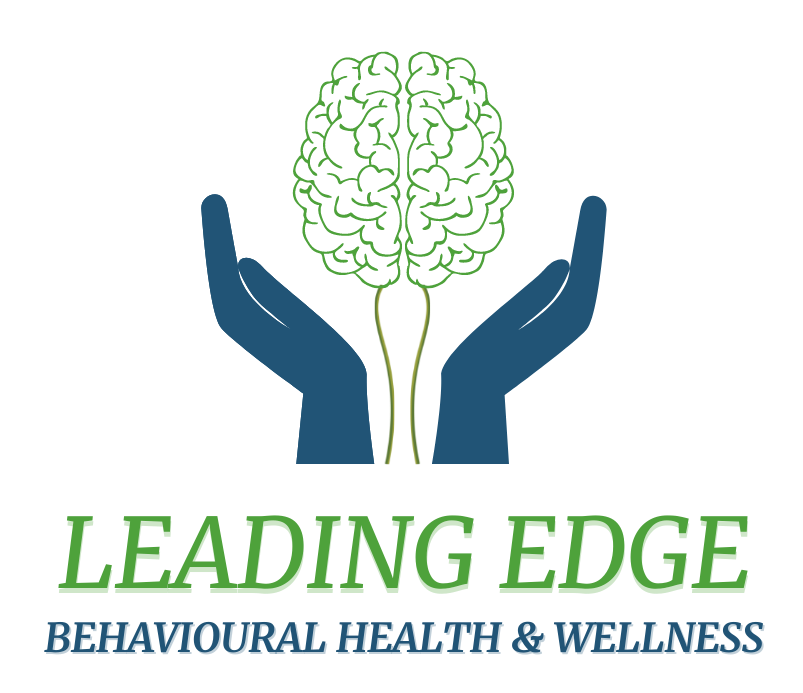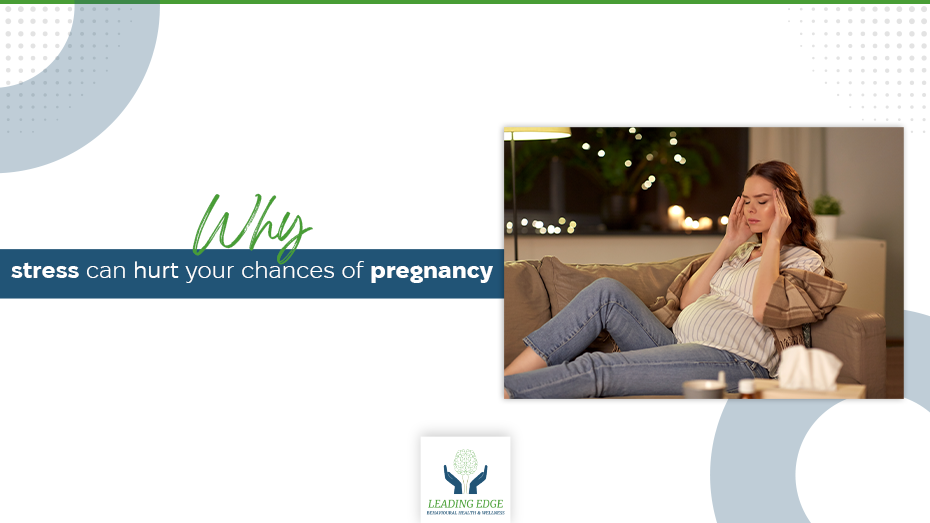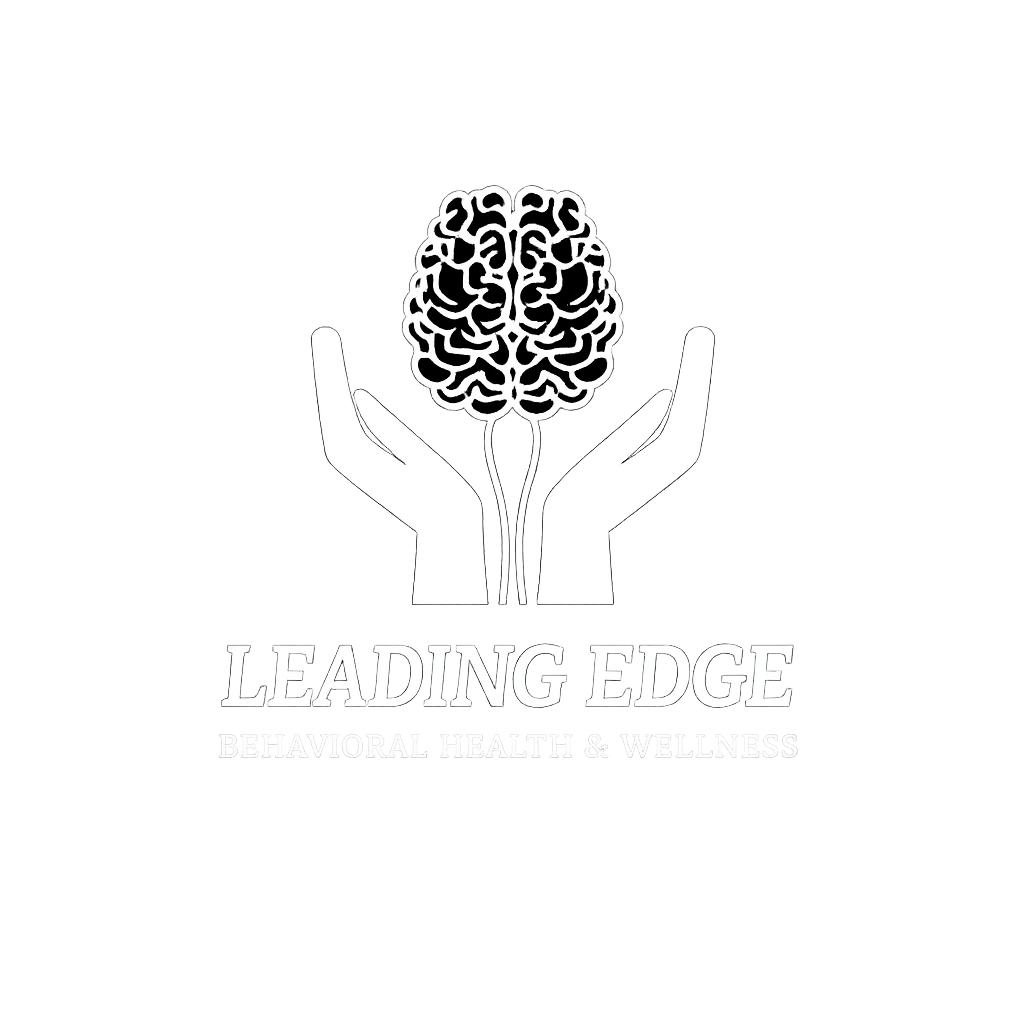Being a couple preparing for a family can be full of joy, but it can also introduce problems. An often neglected reason that may prevent conception is stress.
Leading Edge Behavioral Health and Wellness knows that mental health is closely linked to reproductive health. Stress changes both your mind and body, and knowing this is the first step toward healing and hope.
We’ll explain how stress affects your body, why it makes it harder to get pregnant, and how you can lower stress during this special time.
What Is Stress?
Stress appears as a natural response of your body to pressures or dangers. Having to handle deadlines at work, troubles with your personal life, or worries about getting pregnant, your body still goes into “fight or flight” like in other stressful moments.
Leading Edge Behavioral Health and Wellness offers Initial Psychiatric Evaluations via telemedicine that help identify how stress may impact your mental and physical health. From there, we create personalized treatment plans to support your emotional well-being.
Why Stress Affects Fertility?
Hormonal Imbalances Disrupt the Reproductive System
Under long-term stress, your body produces many stress hormones, such as cortisol and adrenaline. Regulators can block the hypothalamic-pituitary-gonadal (HPG) axis, which controls estrogen, progesterone, and testosterone.
In women, this can result in:
- Irregular menstrual cycles
- Anovulation (lack of ovulation)
- Decreased luteinizing hormone (LH) and follicle-stimulating hormone (FSH) levels
In men, stress can:
- Reduce testosterone
- Lower sperm count
- Decrease sperm motility
- Increase sperm DNA fragmentation
At Leading Edge, our Medication Management services ensure you get the support you need to regulate hormones and stay on track with prescribed treatments. Your well-being is monitored through secure e-prescribing and regular follow-ups.
Behavioral Changes Linked to Stress
Chronic stress can lead to behaviors that further impair fertility:
- Poor sleep disrupts hormone production
- Stress-related eating or weight changes
- Increased alcohol, caffeine, or tobacco use
- Lack of physical activity
- Social withdrawal and intimacy issues
Our clients benefit from Medication Follow-Up sessions that track medication effectiveness and incorporate skill-building interventions and lifestyle coaching to reduce stress-related behaviors.
The Emotional Toll: Psychological Stress and Infertility
The stress of conceiving, particularly if it’s taking longer than anticipated, can generate a loop of infertility-related anxiety, which may result in:
- Anxiety or depression
- Strain in relationships
- Reduced intimacy
- Hopelessness and frustration
At Leading Edge Behavioral Health and Wellness, we treat emotional trauma, self-esteem issues, marital conflict, and anxiety, all of which can surface during fertility struggles. Our mental health team provides individual therapy, helping clients manage the emotional impact of this journey with compassion and care.
How Does Stress Affect Assisted Reproductive Treatments (ART)?
When you are in the process of IVF (in vitro fertilization) or IUI (intrauterine insemination), high stress can negatively influence the results. Studies indicate that:
- Women who are stressed may produce less than the normal amount of eggs in their IVF cycle and may find it harder to become pregnant.
- Men might suffer from anxiety about performance and reduced health of their sperm.
That’s why mental health care should be included as part of fertility treatment. Patients with Leading Edge receive help from psychotherapy, learn stress management, and get evaluated by a psychiatrist for a fully supported care plan.
Ways to Reduce Stress and Improve Fertility
Reducing stress can improve your reproductive potential. Here are science-backed strategies:
-
Practice Mindfulness and Meditation
Meditation, slow down-regulating breathing, and grounding exercises also lower cortisol levels while managing emotions and behaviors. Please inquire about our guided imagery and stress relief coaching sessions.
-
Get Counseling or Therapy
We provide licensed professionals in emotional health who specifically offer individualized assistance with fertility challenges. An Initial Psychiatric Evaluation will get you started on a customized care plan.
-
Keep Fit, but Do it Wisely
Yoga, walking, and swimming are excellent ways to de-stress without exceeding the body’s capacity. At Leading Edge, we help our clients strike the right balance during follow-ups.
-
Give Focus to Sleep Hygiene
Sleep is essential to reproductive health. Strive to get between 7-9 hours of sleep daily, keeping in mind sleep schedules.
-
Follow a Balanced Diet
A fertility-promoting diet consisting of numerous fruits and vegetables, lean proteins, healthy whole grains, and healthy fats will enhance hormone health and minimize inflammation.
-
Limit Intake of Caffeine and Alcohol
Both could harm the available hormonal equilibrium and should be restricted even more during your conception journey.
When to Talk to a Doctor?
Reach out to a physician to discuss your situation if you realize that you have been trying for 12 or more months to get pregnant. Other causes for not getting pregnant may exist, and a doctor can help you identify them.
When people at Leading Edge struggle with fertility, our team looks after their depression, anxiety, sleep concerns, and relationship problems.
Telemedicine lets you meet with knowledgeable professionals there to help you at home without judgment.
Final Thoughts
So, why stress can hurt your chances of pregnancy? Because your body and mind are deeply connected.
Stress hurts your hormones, sleep, immune system, and health, making it harder for your body to support a new pregnancy.
Request support when required to better your health and raise your chances of having a healthy baby.
Leading Edge Behavioral Health and Wellness believes in offering care for the whole person. Our support includes psychiatric evaluations, supervising medications, and therapy during your entire healing process.
Contact one of our experienced providers now and plan your appointment to start caring for your mental and reproductive health.
FAQs
Does stress on its own ever result in infertility?
Sometimes, it can lower your chances by influencing hormones, ovulation, and sperm health.
Are stress hormones evaluated as part of a fertility examination?
Cortisol and additional stress hormones can be measured, generally conducted in a thorough fertility analysis.



